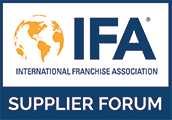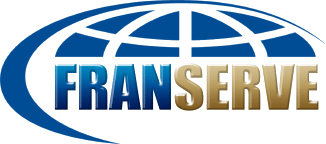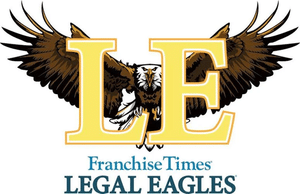What is FDD Item 21?
Franchise Disclosure Document (FDD) Item 21 is a crucial section that provides an in-depth look at the franchisor’s financial statements. This information is vital as it helps potential franchisees evaluate the financial health and stability of the franchisor. Well-prepared financial statements can build trust and confidence, showcasing the franchisor’s ability to support its franchisees effectively.
Does My Franchise Need Financial Statements?
A franchisor that is not planning on registering in California, Illinois, Minnesota, New York, or Virginia does not need formal audited financial statements from a CPA in their first year of franchising. They just need an unaudited opening balance sheet prepared according to GAAP. However, we still recommend as a best practice that you engage a CPA with a franchising background in preparation for audited financial statements from day one. You will eventually need them after your first year, and it is better to set up the systems and be prepared for audited financial statements from the day you launch.
Going back to Item 1, when we talk about who is the franchisor, that is the entity that needs to show their financial statements. Our recommendation is always for new franchisors to start fresh with a new entity.
The financials are important and perhaps one of the top items scrutinized by potential franchisees. It is a very good barometer of the health of any business. It is also important to note that the books of a franchisor should not be run like the typical small business with a goal of tax avoidance. Don’t load up the franchisor with extra cellphones, club memberships, and other extraneous expenses that are not pertinent to running the franchisor business. That typical mindset held by most small businesses and small business accountants can be detrimental to your growth as a franchisor. Run those expenses through your company location if you have to.
The profits in the franchisor entity are what really drive wealth creation and are the ultimate objective scorecard that a future buyer will assess.
Best Practice
In the early stages, prospects and state regulators are going to be very suspicious of the undercapitalized franchisor. As a result, we recommend you try to put a minimum of $100,000 of unallocated capital into the business, just so you have some breathing room to support your initial franchisees.
While that’s not a rule, it’s a guideline that many states look at, and many prospects will also scrutinize.
Think of it from a prospect’s viewpoint: if someone is going to pay you a $30,000 franchise fee and you only have $10,000 in the bank when you start the business, why are they paying you a $30,000 franchise fee? Have empathy for what your initial franchisees are going to feel. You’re demanding that your franchisees are properly capitalized to run a successful location of your brand, so lead by example, showing them that you’re properly capitalized.
If you’re on a tight budget, you should be realistic about your growth. If you don’t have $100,000 in the bank, you should consider not going nationwide out of the gate. You’re going to incur a lot of expenses with a nationwide strategy, and it will be challenging to support franchisees that open far away from your home office. Your growth strategy should be center-out, so you can focus on the success of those first franchisees.
Warning: Be cautious of third-party sellers and brokers because they tend to encourage franchisors to register and sell everywhere. These are great options for companies prepared to grow quickly, but it brings with it another set of risks. Companies can fail in franchising by not growing, of course, but they can also fail by growing too quickly. Remember, the game is all about solid validation from each person listed in Item 20. If you can’t support these new businesses, they will not validate, which will stunt your growth.
Best Practice
As discussed above, break the habit of looking at your financial statements as a tax avoidance document. It is not a tax avoidance document. We encourage you to form a brand-new entity with very few transactions and keep it clean from the beginning. If you can avoid it, don’t even pay payroll. Instead, have a management fee for your corporate entity covering your cost and those of your key management team. The cleaner the better.
Should My Corporate Store Pay Royalties?
Absolutely! If you make $100 in profit, that $100 on the open market is worth the multiple of the earnings in the business it is generated in. If you pay that $100 in royalties to the franchisor, that $100 becomes an expense to your operating unit and profit in the franchisor. A typical small business, for example, might be worth 3x profits while a franchisor could be worth 10x profit or more. So, you just took $100, that was worth $300, passed it into the franchisor, and now it’s worth $1,000 because $1 in expenses to your corporate store is $1 in profits to your franchise system. This starts establishing, from day one, that every dollar in revenue in the franchisor is your highest and best dollar. And you don’t hurt your tax minimization strategy as you have more expenses now in the corporate store.
This is also one of the best ways to fund your franchisor. If you’re doing a million dollars in sales and charging 6% royalty, you now have a $60,000 cash flow into your franchisor, increasing the health of your franchisor. It also tells the story to your franchisees that the business can support being part of a franchise system. If you can’t afford to pay royalties out of your corporate store, maybe you have deeper issues you need to solve.







